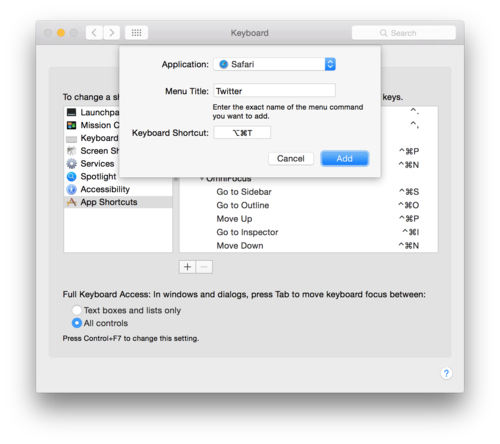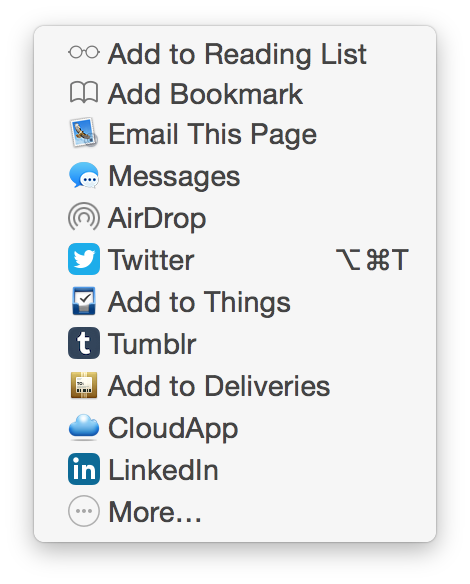The secrets of 9/11 are embedded within the movie Pitch Perfect.
HBO Prepping Bombshell Scientology Film
An amazing and wonderful bit of Scientology news in The Hollywood Reporter this morning:
THR has learned that Oscar winner Alex Gibney (Taxi to the Dark Side) is putting the finishing touches on a film that tackles the Church of Scientology and its Tinseltown tentacles. HBO, no stranger to controversy, having ushered such hot-button docs as The Case Against 8 and the Paradise Lost trilogy to the screen, is eyeing a 2015 airdate for Going Clear, which is based on Lawrence Wright’s controversial book that was also exclusively excerpted in THR.
And:
The film, which is expected to feature new revelations about the controversial religion and its famous followers Tom Cruise and John Travolta, almost certainly will draw an aggressive response from the notoriously litigious church.
Wright’s article on Scientology in The New Yorker is the first real knowledge I had of the allegations against the religion and its leader. That article was so scandalous to me that I’ve been a bit obsessed with Scientology ever since. Going Clear is an amazing book, and it’s hard to believe that such dangerous cults on the scale of Scientology are still a thing in modern America.
I also noticed this bit:
“We have probably 160 lawyers [looking at the film],” says HBO Documentary Films president Sheila Nevins, who is bracing for protests as well.
And later:
Nonetheless, HBO and Gibney (UTA, Cowan DeBaets) aren’t inclined to back down, having taken on other powerful organizations in the past including the Catholic Church (Mea Maxima Culpa: Silence in the House of God) and the U.S. military (Taxi to the Dark Side).
I would love to have HBO disclose a comparison of the litigiousness of Scientology versus the Catholic Church or the U.S. military. I suspect it’s way out of proportion to the size and power of Scientology, which is itself a significant sign they have something to hide. The Catholic Church, and, especially in the U.S., the military are two extremely powerful organizations.
NBC and Netflix Shelve Projects With Bill Cosby
Bill Carter, writing for The New York Times:
In the latest fallout from the sexual assault accusations involving the comedian Bill Cosby, NBC and Netflix have set aside projects with Mr. Cosby, and a lawyer for him issued a denial of a new claim from a woman who said he raped her decades ago.
And later:
The decisions come in the face of a wave of reaction to decades-old accusations of sexual assault against Mr. Cosby that have flared up again in recent weeks. In a television interview on Tuesday, the former model Janice Dickinson became at least the fifth woman to come forward with on-the-record accusations that Mr. Cosby assaulted her.
Mr. Cosby’s lawyers had, until Tuesday, issued only a blanket denial of all the accusations, denouncing them as “old and discredited.” They said they and the comedian would have no further comment on the case.
But after Ms. Dickinson appeared on the show “Entertainment Tonight,” saying Mr. Cosby took her to Lake Tahoe, where he drugged and raped her, Martin Singer, a prominent entertainment lawyer in Los Angeles, labeled Ms. Dickinson’s account “an outrageous and defamatory lie” in a letter he sent to the entertainment trade news site The Wrap.
Voter Turnout Drops to 72 Year Low
The New York Times editorial board:
The abysmally low turnout in last week’s midterm elections — the lowest in more than seven decades — was bad for Democrats, but it was even worse for democracy. In 43 states, less than half the eligible population bothered to vote, and no state broke 60 percent.
In the three largest states — California, Texas and New York — less than a third of the eligible population voted. New York’s turnout was a shameful 28.8 percent, the fourth-lowest in the country, despite three statewide races (including the governor) and 27 House races.
Over all, the national turnout was 36.3 percent; only the 1942 federal election had a lower participation rate at 33.9 percent.
Bad news for the country, but particularly bad news for Democrats. The higher the turnout, the better Democrats tend to perform. Republicans know this, which is why they focus so heavily on voter suppression.
They so Want to Believe It
Paul Graham, writing to undo the meme that he would fund anyone who looked like Mark Zuckerberg:
How could he have done so badly? He looked so much like Zuck!
It was not only a joking reference to a single incident, but the fact that we joked about it shows we knew that looking like Zuck had no predictive value.
As if anyone would think it did. Could anyone be so naive as to think that resembling Zuck would be enough to make a founder succeed? And is it plausible that we, of all people, who’d interviewed thousands of founders, would think such a thing?
So why have so many people since believed I was serious? For the same reason, presumably, that others cling so tenaciously to the idea that Obama was born outside the US: because they so want to believe it.
This last point is an absolutely essential truth of human nature that’s so often either not understood or is simply ignored. It is, however, why political arguments often ignore any “objective truth” that might exist (though often in politics, no objective truth does exist), why Scientologists can believe that L. Ron Hubbard is continuing his research on another planet, and why racists believe ridiculous stereotypes about people that don’t look like them. It is, in my ways, a root cause of the human condition.
Using the Keyboard to Access Share Extensions in Safari on Yosemite
Here’s a simple tip for setting up key bindings for individual share extensions in Safari on OS X Yosemite. It turns out that in addition to the action button in Safari’s toolbar, there’s also a “Share” menu item within the File menu. This means it’s possible to use OS X’s built-in (and awesome) ability to create a key binding for any menu item.
I wanted a keyboard shortcut for sharing items on Twitter. To set this up, in Safari, go to the File menu and hold your mouse over the “Share” item. Note the title of the extension you want bound (it’ll be the same as the name of the item in the popup menu accessed via the toolbar item). In my case, the Twitter item’s title is just “Twitter”.

Now go to System Preferences, select Keyboard, and click the Shortcuts tab. Choose “App Shortcuts” from the list on the left, and click the plus button at the bottom. In the sheet that appears, select Safari as the application, enter “Twitter” as the menu title (the text must match the menu item’s title exactly), and record whatever keyboard shortcut you want.

If you now go back to Safari and press your keyboard shortcut, the compose tweet sheet will appear. Obviously this kind of setup is applicable to any menu items in any application, including changing existing keyboard shortcuts that you might not like.

That’s it! Another win for keeping your hands on the keyboard as often as possible.
Why Dropbox Is Popular
Great explanation by Michael Wolfe on why Dropbox is popular:
Well, let’s take a step back and think about the sync problem and what the ideal solution for it would do:
- There would be a folder.
- You’d put your stuff in it.
- It would sync.
They built that.
Why didn’t anyone else build that? I have no idea.
“But,” you may ask, “so much more you could do! What about task management, calendaring, customized dashboards, virtual white boarding. More than just folders and files!”
No, shut up. People don’t use that crap. They just want a folder. A folder that syncs.
Complex Todo Apps
Matt Gemmell, writing about managing email:
Don’t worry: this isn’t yet another Getting Things Done love-in. GTD probably works, but it doesn’t work for you (or me). There are plenty of great apps to help you manage your life and your tasks, like OmniFocus and so on, but they won’t work for you. You won’t devote the time to organise all the stuff.
You won’t create contexts, and you certainly won’t file stuff appropriately. You won’t do your weekly review. You’re also probably not the overall person in charge of the next Mars mission. Those systems are not for normal people; they’re for obsessive-compulsives who just happen to prefer filtering email than counting toothpicks or quadruple-checking that the oven is off.
Couldn’t agree more. Todo apps are a lot like software processes: they’re only as effective as the people involved.
Google’s Android Begins to Top Out
Google’s Android Begins to Top Out
Rolfe Winkler in the Wall Street Journal:
Android ran 84% of smartphones shipped globally in the third quarter, according to research firm Strategy Analytics, down slightly from 85% in the second quarter.
“Android’s global smartphone market share is peaking,” said Neil Mawston, executive director of Strategy Analytics. “Unless there is an unlikely collapse in rival Apple iPhone volumes in the future, Android is probably never going to go much above the 85% global market share ceiling.”
Market share over 80% is still an amazing figure. I’d like to see sales in emerging markets broken out, as I suspect China and perhaps India look completely different from the U.S. and E.U.
There’s also bad news for Samsung:
Meantime, Samsung Electronics Co.’s dominance over other Android handset makers is waning, reducing the threat that the Korean hardware maker could wrest more control from Google. In the third quarter of this year, 25% of smartphones shipped were Samsung devices. That figure fell from the year prior, when it stood at 35%.
Samsung ships mostly Android devices and long has been dominant among Android vendors thanks in part to big commissions it pays to smartphone distributors, particularly in emerging markets. That gives them an incentive to push its devices over rivals.
Yet Samsung is losing out to startups like China’s Xiaomi Inc., which are undercutting the Korean giant on price.
This was entirely predictable. Samsung is fundamentally a copycat company that makes second-rate products. Their hardware is mostly cheap plastic, even on high end devices, and their expertise in the most important differentiator for smartphones, software, is non-existant. Given the consumer-centric nature of the smartphone business, they’ve always been vulnerable to Apple closing off their high-end differentiators (screen size, some of Android’s software configurability), and commodity hardware vendors eating away at their low end.
